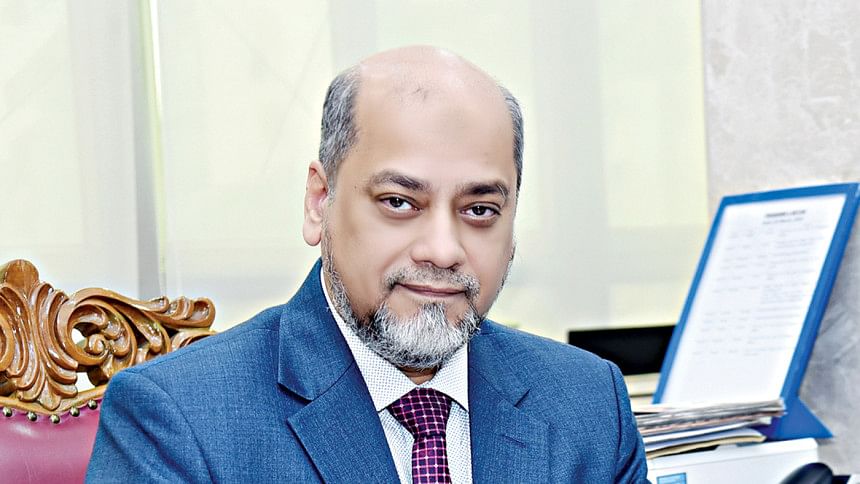Enhancing customer convenience with fully retail-oriented, cashless service

Mohammad Ali
Managing Director & CEO
Pubali Bank
The Daily Star (TDS): How is Bangladesh progressing in its transition to a cashless economy?
Mohammad Ali (MA): All types of interbank transactions including RTGS, BEFTN are cashless transactions. We often think that only mobile banking or cards are cashless transactions. If we did not have RTGS, we would have to carry hard cash. The salary disbursement through payroll system for the garment workers is also cashless now.
The major impact of COVID was when our incentive packages were introduced, creating a significant shift towards a cashless transformation. In shopping and other sectors, the card business has been active for a long time, and this momentum is now growing. It is a big deal, as buyers would not have been able to carry large amounts of cash. However, QR code payments have not advanced as quickly as card payments. Major changes are coming to the cashless society, particularly with debit cards, credit cards and widespread use of POS machines.
TDS: What innovative steps has your bank taken to accelerate the shift toward a cashless economy, and how have they impacted customers?
MA: At Pubali Bank, we have observed an annual transaction volume growth of over 40%. Our journey into digital transactions began relatively recently. Specifically, our PIE Banking mobile app was launched just 2–3 years ago. This year, we expect to process nearly BDT 1, 00,000 crore in cashless transactions, primarily through mobile apps. Last year, we closed cashless transactions worth sixty lac taka.
Pubali Bank has also seen significant growth in the adoption of QR codes. We have been focusing more on marketing, and last year we distributed a record 12,000 POS machines, the highest in the bank's history within a single year. We continue to play a leading role in all digital banking initiatives. Currently, we are leading the industry in QR code adoption.
In addition, we have introduced contactless cards, enabling customers to quickly make small transactions with ease. The most significant achievement, however, is the mobile banking app. According to market surveys, our app is considered the most useful, offering numerous features that set it apart. Customers can open an account, set up an FDR from home (a service no other app currently offers), and transfer funds. Our app also facilitates credit card payments and MFS, providing a seamless experience for tasks like checking stock market data. The ultimate goal is to make our services fully retail-oriented by cashless, ensuring that customers never have to visit the bank again.
TDS: What policy changes or government initiatives do you believe are crucial for making digital transactions more secure, inclusive, and widely adopted?
MA: Bangladesh is currently facing a challenging period, with issues such as dollar instability and capital flight. In response, Bangladesh Bank is focusing its efforts on addressing these concerns. Moving forward, we must prioritise integrating our mobile apps with digital content to provide a comprehensive, unified experience. We need to promote the use of QR codes, raising awareness is key. Additionally, there is a pressing need to work on financial literacy to ensure everyone is informed and empowered.
It is also crucial to bridge the digital divide, particularly among women, to ensure they are not left behind in this transformation. The geographical divide must also be addressed to make sure no one is excluded from the benefits of digital financial services.

 For all latest news, follow The Daily Star's Google News channel.
For all latest news, follow The Daily Star's Google News channel. 



Comments